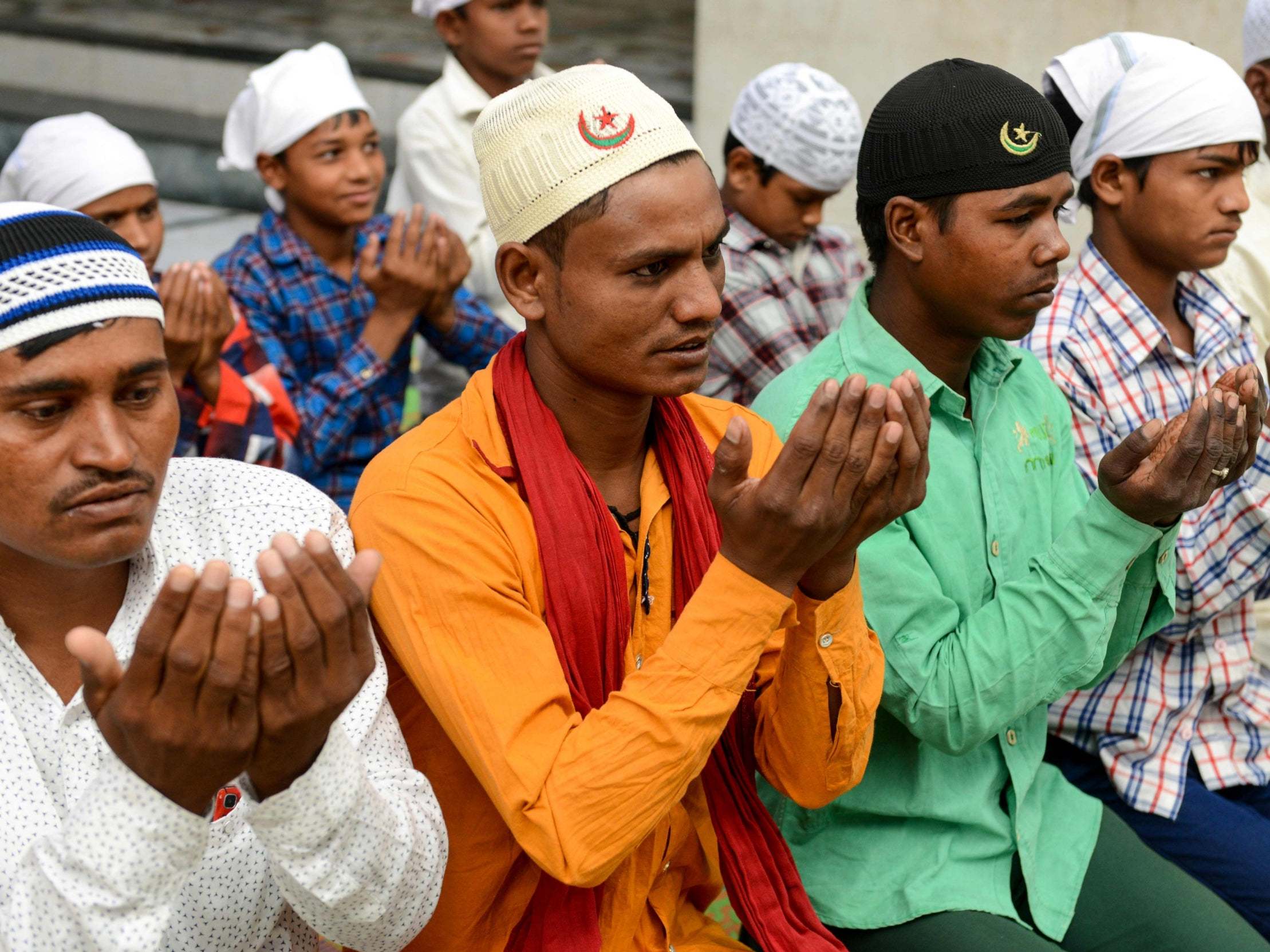India's treatment of Muslims condemned by US government report
Mob attacks on followers of Islam see ‘perpetrators protected from prosecution’ by authorities, according to official document

Your support helps us to tell the story
From reproductive rights to climate change to Big Tech, The Independent is on the ground when the story is developing. Whether it's investigating the financials of Elon Musk's pro-Trump PAC or producing our latest documentary, 'The A Word', which shines a light on the American women fighting for reproductive rights, we know how important it is to parse out the facts from the messaging.
At such a critical moment in US history, we need reporters on the ground. Your donation allows us to keep sending journalists to speak to both sides of the story.
The Independent is trusted by Americans across the entire political spectrum. And unlike many other quality news outlets, we choose not to lock Americans out of our reporting and analysis with paywalls. We believe quality journalism should be available to everyone, paid for by those who can afford it.
Your support makes all the difference.The US government has said that anti-Muslim violence is continuing in India, in its annual report on international religious freedom.
A state department report noted that mob attacks in the country occurred throughout 2018 and contained allegations of law enforcement involvement in the violence.
“Mob attacks by violent extremist Hindu groups against minority communities, especially Muslims, continued throughout the year amid rumours that the victims had traded or killed cows for beef,” the document noted.
The report said authorities “often protected perpetrators from prosecution” and that attacks “included allegations of involvement by law enforcement personnel”.
“There were reports of religiously motivated killings, assaults, riots, discrimination, vandalism and actions restricting the right of individuals to practice their religious beliefs,” the document added.
Narendra Modi, India’s prime minister, has faced longstanding accusations of marginalising India’s Muslim and Christian communities.
Despite the controversy surrounding him, the 68-year-old was returned to power for a second term in a resounding May 2019 election victory.
Mr Modi, who leads the ruling Bharatiya Janata Party (BJP), won particularly strong support from his Hindu nationalist base.
But he is regarded with wariness by many of the country’s 180 million Muslims, with the US report noting that senior BJP officials made “inflammatory speeches against minority communities”.
The document also discusses the rape and murder of Asifa Bano, an eight-year-old girl who was killed in January 2018.
Her death, which allegedly involved police officers, prompted widespread protests across the nation.
“Jammu and Kashmir police arrested eight men, including four police personnel, in connection with the kidnapping, gang rape, and killing of an eight-year-old girl,” the report said.
“The men allegedly kidnapped the victim, took her to a nearby temple, and raped and killed her in an effort to drive her nomadic Muslim community out of the area.”
Also among the Modi administration’s policies are proposals to “rename Indian cities with Muslim provenance,” the report said.
“Most notably this includes the renaming of Allahabad to Prayagraj. Activists said these proposals were designed to erase Muslim contributions to Indian history and has led to increased communal tensions.”
On Sunday, the Modi administration issued a sharp rejection of the US government’s findings.
“India is proud of its secular credentials, its status as the largest democracy and a pluralistic society with a longstanding commitment to tolerance and inclusion,” a government spokesperson said.
“We see no locus standi [right to bring action] for a foreign entity to pronounce on the state of our citizens’ constitutionally protected rights.”
Discussing Mr Modi’s second electoral victory in May 2019, Ajay Mehra, a political scientist, said: “They will be able to say that minorities are just that, we are the majority, and what we say goes.”
Mr Mehra is currently working on a book about the prime ministers of India.
“If they say nobody should eat beef, nobody will eat beef. If they say there should be no cow slaughter, then it will be so,” he told The Independent.
“And if they say that cities with Muslim names must change, then they will.”
Mike Pompeo is expected to visit India on Tuesday as the US seeks greater strategic ties with India.
Join our commenting forum
Join thought-provoking conversations, follow other Independent readers and see their replies
Comments